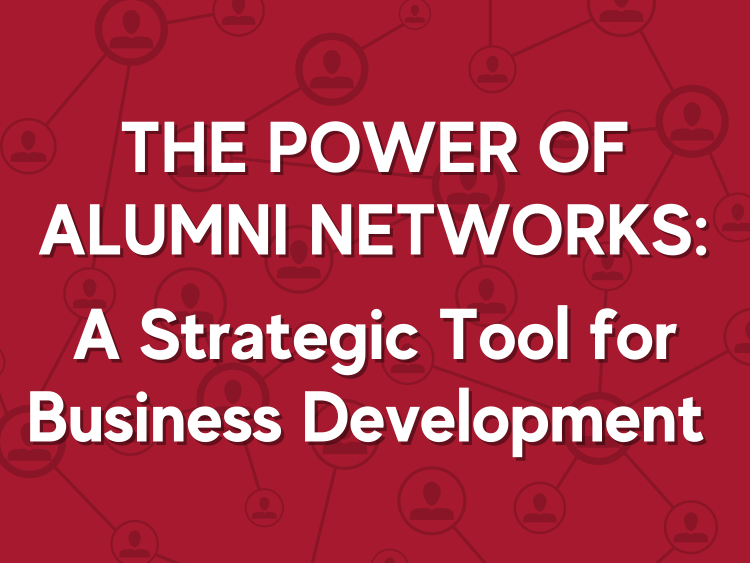By: Sharon Berman
Published: Rain Today
In the past, the most pervasive and perplexing challenge in professional service marketing was motivating young associates to become rainmakers. As times got tougher, that challenge expanded to include the principals and partners who never had to market before. Suddenly, the large cadre of seasoned professionals who used to be the “minders” and “grinders” of the work others brought in are in the spotlight and under pressure to become business developers.
Whether it’s a law firm exhorting its associates to market or an engineering firm prodding its senior professionals to make some rain, the problem is equally daunting. Although there is no “magic wand” that turns people into business developers, some firms have been more successful than others by applying a recipe that consists of four distinct ingredients: commitment, culture, compensation, and cultivation.
Commitment
When business slows significantly, the impetus for asking more of a firm’s professionals to market often stems from panic. Unfortunately, business development doesn’t happen overnight. Effectively transforming service providers into rainmakers is a long-term proposition that requires persistent commitment from firm management. It takes a farmer’s patience and perseverance to plant the seeds, see them take hold, and nurture them to grow to fruition.
In the absence of long-term commitment, firms usually embark on a series of unsuccessful programs designed to teach their professionals how to generate sales. This is worse than maintaining the status quo because your team will quickly see through your sizzle-without-substance efforts and won’t take them seriously.
At the same time, it’s important to remain uncommitted until you know what business development program you’re going to pursue. Start by investigating what it will take to see change. What kind of investment will you have to make in terms of time (not just yours, but your professionals), training, funding, and compensation? What level of investment might be required to hire consultants, coaches or business development specialists? Is the firm willing to examine its compensation structure and adjust it if necessary to produce a greater return?
Once you have embarked on a course of action, don’t expect the first substantial results for 12-24 months, although you may see some success sooner. By committing today to begin motivating associates to market, you are laying the foundation to take advantage of the economic upturn.
Culture
Your business development imperative has to permeate the firm’s culture, championed by influential shareholders who have demonstrated the ability to generate revenue. These business champions have to communicate business development expectations clearly and consistently.
Changing the firm’s culture depends on an individualized approach to change the behavior of each professional. That’s because different people are motivated by different “carrots.” For some, extra compensation may do the job, while others need an additional, less tangible motivator such as recognition by peers and firm management, or the prospect of greater opportunities, such as becoming a relationship liaison for a larger client. Still others like to follow a mentor or role model who engenders loyalty and aspiration. In general, attempts to motivate will fail when expectations are unrealistic and not in line with the individual’s skill set, experience and personality.
Some of the leaders in your program could be young professionals already champing at the bit to develop business. They won’t need extra motivation at all—just the right tools and a clear direction to focus their efforts. They understand that becoming a business developer benefits the firm today, as well as benefits them individually tomorrow.
If your firm is lucky, you’ll have others who instinctively “get it.” They realize that their Ivy League diploma is just paper if they don’t have the ability to bring in business. If they were to lose their job in this economy, they would be just another commodity in a vast marketplace and could suffer a decline in earning power. They will recognize that a book of business, or a demonstrated ability to develop business (especially in a valuable niche profession), will assure them of a much stronger place than those who have always had work handed to them.
What do you do about those who just don’t want to market? For some, the problem may be that they don’t really understand what you’re asking of them. Most likely they equate marketing with selling and find that idea distasteful. In that situation, exposure to training may open their minds. Others will pay lip service to their interest in business development but won’t take action.
An effective way to change the behavior of recalcitrant cases is to involve them in developing the rainmaking program. For example, ask them to help create a focused plan that defines the target populations and industries of desirable clientele and identifies the type of work the firm would like to pursue. A particularly effective way to increase motivation and commitment is to create a Business Development Committee or Associate Marketing Committee with some decision-making authority. Include those who might be fence-sitters, as well as highly motivated people.
Compensation
Monetary incentives show you’re serious about business development. Clearly define who will be paid for what. For instance, are you going to give a fee or percentage to anyone who brings in major billable work, as well as to the person who brings a prospect to your table who ultimately hires another firm?
In addition to compensation, your investment in business development has to provide for specific marketing training with time charged against an in-house account so no one is penalized from a productivity standpoint. Firms often overlook the fact that any training they provide is a gift to the associate. What better motivator for associates than self-interest?
However, think twice before using your top rainmakers as the trainers. Those newer to the workforce may benefit from hearing what tactics work for different colleagues, but unfortunately the best “salesperson” often is not the best teacher. Instead, consider investing in professional coaches, consultants, and trainers to underscore the firm’s commitment and generate buy-in.
Cultivation
People will take the matter of rainmaking seriously only if it stays on their radar screen with a clear message that the firm means business. Your team won’t pay attention to half-hearted reminders to “get out there and bring in clients.” They will just keep their heads low and wait until it goes away—after all, it did last time.
As you cultivate your new rainmakers’ skills, keep your expectations realistic and flexible. For example, a young professional may be discouraged if he believes the only acceptable measure of success is to bring in the type of “big fish” only a partner could land. A realistic expectation may be to assign rainmaker trainees to network strategically with key members and influencers of a certain industry group to get the firm’s name out and begin to build or strengthen relationships.
How flexible is your firm willing to be in its support of people who are just learning how to market? For example, if someone introduces a new client with work that might not meet your firm’s usual standards, are you willing to take on the project rather than rebuff that neophyte’s attempt at business development? Clearly, the individual has to understand that this is not the type of work the firm is looking for, but at the same time, it may be important to reward and give positive reinforcement to your team members for small successes.
Finally, accountability is critical in the process of cultivation. Your professionals will not change their behavior if no one is watching. Consider monthly marketing meetings where someone is closing the loop and following up on commitments that were made to make phone calls, write articles, explore organizations, etc. Chart successes, and give help and encouragement where needed.
Sharon Berman is principal of Berbay Marketing & PR, a marketing consulting firm specializing in working with professional services firms. She can be reached at berman@berbay.com.


